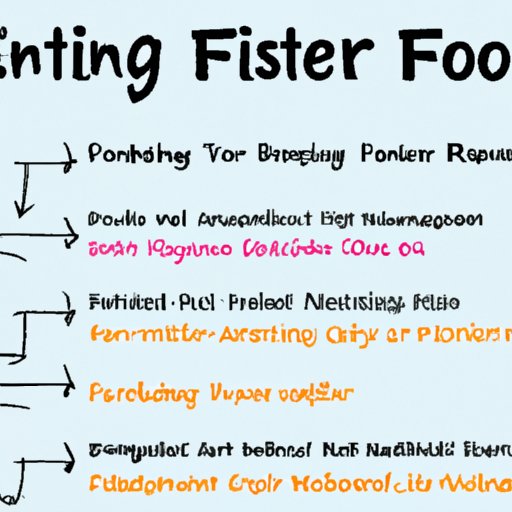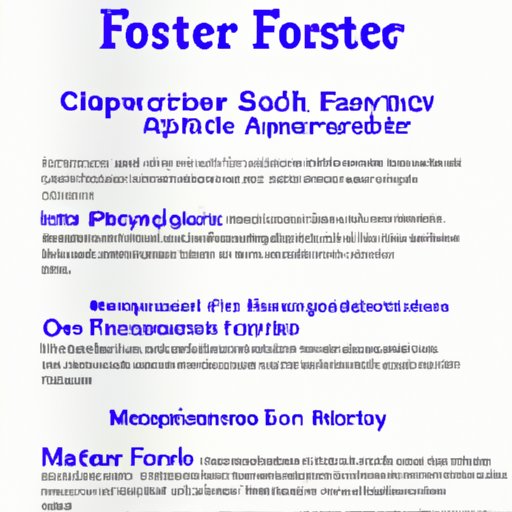Introduction
Foster parenting is an important role that can have a positive impact on the lives of children in need. It involves caring for a child or young person who cannot live with their own family. The aim of foster care is to provide a safe, secure, and nurturing environment for the child until they can be reunited with their birth parents or placed into permanent adoptive care.
Becoming a foster parent can be a daunting prospect, but it can also be incredibly rewarding. This article will explore the process of becoming a foster parent, the different types of support available, and stories from current foster parents.

Describing the Process of Becoming a Foster Parent
The first step towards becoming a foster parent is to contact your local authority or a voluntary fostering agency. They will provide information about the requirements for foster care and the steps involved in the assessment process. Generally speaking, anyone over 21 years old can become a foster parent, regardless of marital status, sexuality, or religion. You should also have a spare bedroom in your home and be able to provide a safe and secure environment for the child.
Once you have contacted your local authority or fostering agency, you will be invited to attend an information session about foster care. This will give you an opportunity to ask questions and find out more about the process. After this, you will need to complete an application form and undergo a series of assessments. These assessments will include a medical check-up, criminal record check, and references from people who know you. You may also be required to attend training courses and workshops to prepare you for foster care.

Types of Support Available to Foster Parents
Foster parents receive a variety of support to ensure they are equipped to provide the best care possible for the children in their care. Financial assistance is provided to cover the costs of looking after the child, including food, clothing, and activities. Training and educational resources are also available to help foster parents understand the needs of the children in their care and learn good parenting skills. Additionally, foster parents have access to professional guidance from social workers who can provide advice and support.
In addition to these forms of support, foster parents can also access specialist services such as therapeutic support for the child and respite care for the foster parent. Respite care provides a break for the foster parent, allowing them to take some time off from caring for the child. This can be beneficial for both the foster parent and the child, as it allows the foster parent to recharge and the child to spend time with other people.
Stories from Current Foster Parents
Hearing stories from current foster parents can be helpful when considering whether to become a foster parent. One foster parent, Emma, said: “Fostering has been one of the most rewarding experiences of my life. I’ve had the privilege of seeing vulnerable children thrive and grow in a loving environment.”
Another foster parent, John, said: “I was initially apprehensive about taking on the responsibility of being a foster parent, but it has been one of the best decisions I have ever made. It’s incredibly fulfilling to see the progress the children make while in my care.”
However, it is important to remember that there can also be challenges. Emma said: “It can be difficult to say goodbye to the children when they leave, and it can be challenging to manage difficult behaviours. But overall, it’s been an incredibly rewarding experience.”
Conclusion
Foster parenting can be an incredibly fulfilling experience. The process of becoming a foster parent involves completing an application form and undergoing a series of assessments. There is a range of support available to foster parents, including financial assistance, training and educational resources, and professional guidance. Current foster parents have shared their stories, highlighting both the challenges and rewards of foster care.
For anyone considering becoming a foster parent, it is important to remember that you do not have to do it alone. There is a network of support available to help you on your journey. So if you are ready to open your heart and home to a child in need, foster parenting could be the perfect fit for you.
(Note: Is this article not meeting your expectations? Do you have knowledge or insights to share? Unlock new opportunities and expand your reach by joining our authors team. Click Registration to join us and share your expertise with our readers.)
